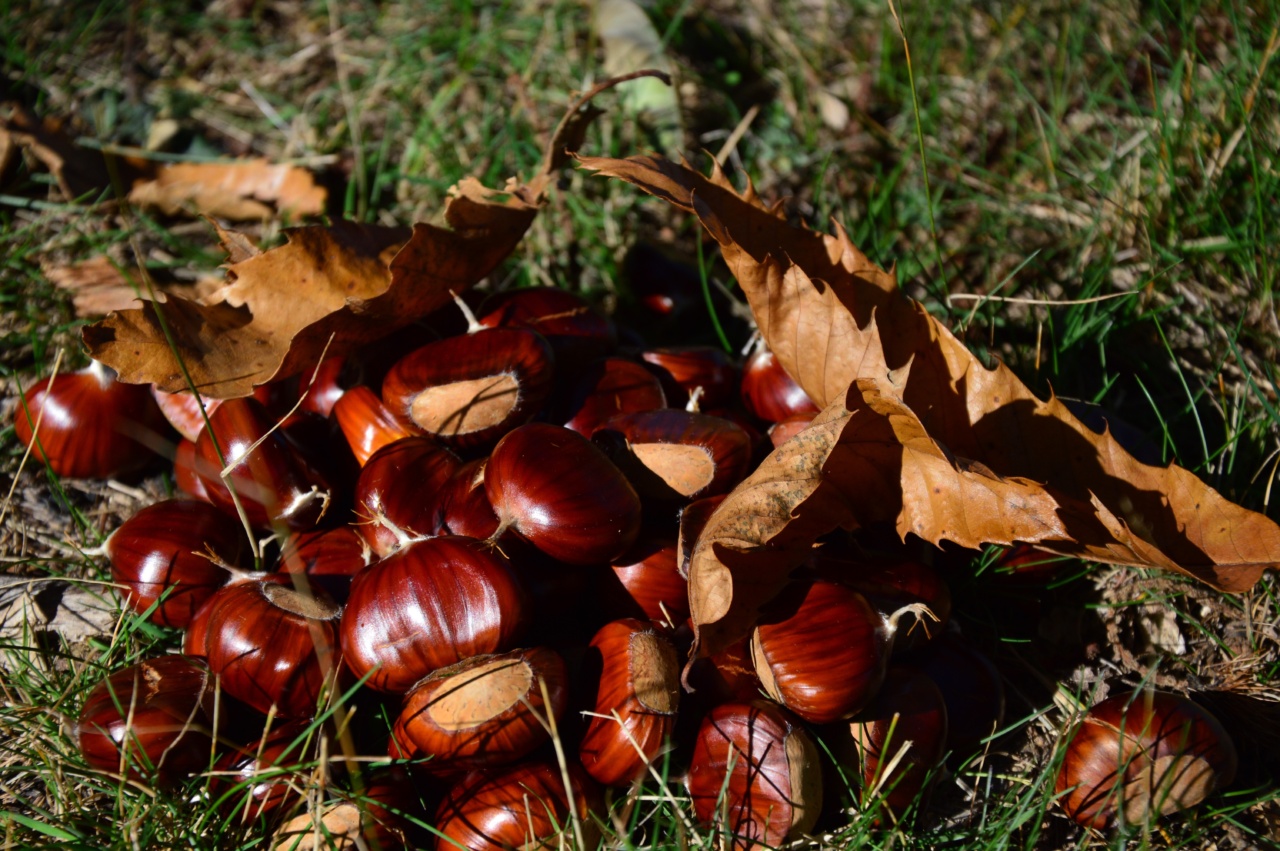Chestnuts are beloved for their rich and earthy flavor, especially when roasted.
But did you know that they are also packed with important nutrients? In this article, we will explore the nutritional value of chestnuts, including their vitamins, minerals, and antioxidants.
What are Chestnuts?
Chestnuts are the edible nuts of the chestnut tree, which is native to the Northern Hemisphere. They come in many different varieties, including Chinese, Japanese, European, and American chestnuts.
Chestnuts are often roasted, but can also be cooked in soups and stews or ground into flour for baking.
Vitamins in Chestnuts
Chestnuts are a good source of many important vitamins. Specifically, they contain:.
- Vitamin C – essential for immune function, wound healing, and the production of collagen.
- Vitamin B6 – important for brain development and function, as well as the production of red blood cells.
- Thiamin (Vitamin B1) – helps the body convert food into energy.
These vitamins all play a crucial role in overall health and well-being.
Minerals in Chestnuts
Chestnuts are also loaded with essential minerals. Some of the minerals that can be found in chestnuts are:.
- Potassium – important for heart health and the regulation of blood pressure.
- Copper – necessary for the production of red blood cells and collagen, as well as the absorption and use of iron.
- Magnesium – helps regulate muscle and nerve function, blood sugar levels, and blood pressure.
- Phosphorus – plays a key role in the growth and repair of cells and tissues, and strengthens bones and teeth.
Chestnuts are a particularly good source of potassium, which is important for a healthy heart and nervous system.
Antioxidants in Chestnuts
Chestnuts are also rich in powerful antioxidants, which can help protect the body against damage from harmful molecules called free radicals. Antioxidants in chestnuts include:.
- Vitamin E – protects cells from oxidative damage and plays a role in immune function.
- Ellagic acid – a type of polyphenol antioxidant that has been shown to have anti-cancer properties.
- Gastrodin – another polyphenol antioxidant known for its neuroprotective effects.
These antioxidants help keep the body healthy and may even help prevent chronic diseases like heart disease, cancer, and Alzheimer’s disease.
Nutritional Value
One ounce (28 grams) of roasted chestnuts contains:.
- Calories: 69
- Protein: 0.7 grams
- Fat: 0.6 grams
- Carbohydrates: 15 grams
- Fiber: 1.4 grams
- Sugar: 2.2 grams
As you can see, chestnuts are low in fat and calories, but high in fiber and carbs. They are also a good source of plant-based protein.
How to Incorporate Chestnuts Into Your Diet
Chestnuts are a versatile ingredient that can be used in many different dishes. Here are a few ideas for how to include them in your meals:.
- Roast chestnuts and eat them as a snack.
- Add chopped chestnuts to a salad for a crunchy texture.
- Cook chestnuts in a soup or stew for added flavor and nutrition.
- Grind roasted chestnuts into flour and use it to make gluten-free baked goods.
With their unique flavor and impressive nutritional profile, chestnuts are a delicious and healthy addition to any diet.





























